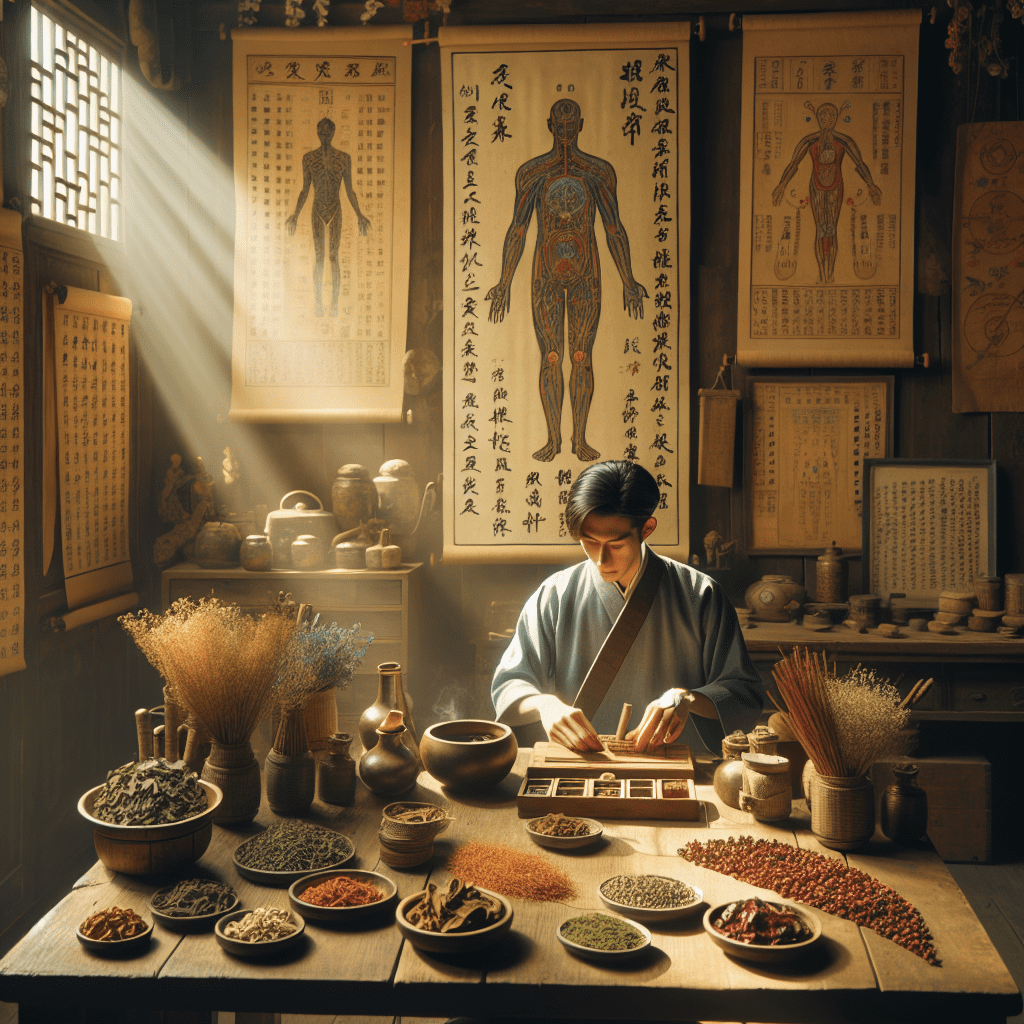Traditional Chinese Medicine (TCM) has stood the test of time for over 2,000 years, offering a profound approach to health that fundamentally differs from Western medicine. At its core, TCM embraces the concept of balance—harmony between mind, body, and spirit—as the foundation of optimal health. This ancient healing system views the human body as an interconnected whole where physical symptoms are merely expressions of deeper imbalances within the body’s vital energy, or “Qi”.
In recent years, health-conscious individuals worldwide have shown increasing interest in these holistic wellness approaches. Many are turning away from purely symptom-focused treatments and seeking comprehensive health solutions that address root causes while honoring the body’s natural healing capabilities. This shift reflects a growing recognition that true wellness encompasses physical health, emotional balance, mental clarity, and spiritual well-being—precisely the principles that TCM has championed for millennia.
As this ancient wisdom gains renewed appreciation, something remarkable is happening: cutting-edge artificial intelligence technology is beginning to intersect with these time-honored practices, similar to what’s explored in our comprehensive guide on AI in TCM. This convergence of ancient wisdom and modern innovation creates unprecedented opportunities to enhance, validate, and personalize traditional healing methods for contemporary health journeys.
AI Revolutionizing TCM Diagnostics and Treatment
The integration of AI in Traditional Chinese Medicine represents one of the most promising developments in holistic healthcare today. Traditional diagnostic methods in TCM—tongue examination, pulse reading, facial analysis, and detailed patient interviews—rely heavily on practitioners’ subjective experiences and interpretations. While these approaches have proven effective over centuries, they face challenges in standardization and reproducibility in modern healthcare settings.
Machine learning algorithms are now transforming these traditional diagnostic processes. By analyzing thousands of tongue images, for example, AI systems can detect subtle patterns and correlations that might escape even experienced practitioners. One groundbreaking study demonstrated that AI-powered tongue diagnosis achieved over 90% accuracy in identifying specific TCM syndrome patterns, offering unprecedented precision in this ancient diagnostic technique.
Similarly, AI applications in pulse diagnosis use sensors to capture detailed waveform data from patients’ pulses. These systems can detect minute variations that correspond to different health conditions according to TCM theory. By processing this data through sophisticated algorithms, AI helps practitioners arrive at more consistent diagnostic conclusions.
The real power of AI in Traditional Chinese Medicine lies in its ability to personalize treatment plans. By analyzing vast datasets of patient information—including symptoms, constitutional types, and previous treatment outcomes—AI can help identify which herbal formulations or acupuncture protocols have proven most effective for specific patient profiles. This data-driven approach enhances the practitioner’s expertise rather than replacing it, creating a powerful synergy between ancient wisdom and modern technology.
As one TCM researcher noted, “AI doesn’t replace the human element in TCM practice—it amplifies our capacity to deliver precisely targeted care based on each patient’s unique constitution and condition.”
AI-Powered Herbal Screening and Drug Discovery
Traditional Chinese herbal medicine comprises thousands of plant, animal, and mineral substances, often combined in complex formulations. The proper selection and combination of these elements require deep knowledge and experience. This complexity presents both challenges and opportunities for AI applications in TCM.
AI systems are now capable of rapidly screening vast databases of herbal compounds to identify potential therapeutic candidates for specific health conditions. By analyzing the chemical composition of herbs and their documented effects, machine learning algorithms can predict which combinations might offer the most promising results for particular syndromes or diseases.
For instance, researchers have developed AI models that can analyze the molecular structures of herbal compounds and predict their binding affinity to specific protein targets involved in various diseases. This capability dramatically accelerates the process of identifying potentially beneficial herbs for further investigation.
One particularly exciting application involves using AI to decode the synergistic effects between herbs in traditional formulations. TCM has always emphasized that the therapeutic value of herbal combinations often exceeds the sum of their individual effects—a principle that aligns with modern concepts of drug synergy. AI algorithms can now model these complex interactions, helping explain why certain classical formulations have remained effective for centuries.
In drug discovery, AI is bridging the gap between TCM and modern pharmacology, a process documented in scientific research on machine learning integration with TCM. By identifying the active compounds in traditional remedies and analyzing their mechanisms of action, AI helps translate ancient herbal wisdom into terms that can be understood and validated through contemporary scientific methods. This process not only enhances the credibility of TCM but also opens new pathways for developing innovative therapeutics based on time-tested natural remedies.
A researcher in this field explained, “AI gives us the computational power to explore thousands of potential herbal combinations and their effects on multiple biological pathways simultaneously—something that would take decades using conventional methods.”
Systems Theory Framework for AI Integration in TCM
The integration of AI in Traditional Chinese Medicine requires more than just technological capability—it demands a conceptual framework that honors the holistic principles at TCM’s foundation. This is where systems theory provides invaluable guidance.
TCM inherently embraces a systems perspective, viewing health as the harmonious interaction of multiple bodily systems influenced by internal and external factors. This approach aligns perfectly with modern systems biology, which studies how complex biological systems function through the interplay of their components.
A systems theory-driven framework for AI in TCM research focuses on capturing and modeling these complex interactions, a concept aligned with research on AI applications in TCM target prediction rather than reducing them to linear cause-and-effect relationships. This approach recognizes that in TCM, symptoms rarely exist in isolation—they reflect pattern disharmonies that affect the entire system.
AI algorithms based on systems theory can map the complex network of relationships between symptoms, underlying patterns, and treatment responses. By analyzing these networks, AI can help practitioners visualize and understand the holistic nature of health conditions through a TCM lens.
For example, researchers have developed knowledge graphs that connect TCM concepts like the Five Elements theory with modern biomedical understandings of physiology. These knowledge structures allow AI systems to “think” in terms of patterns and relationships—the very foundation of TCM diagnostic principles.
This systems approach also enables AI to better understand seasonal influences on health—a key concept in TCM. By correlating weather patterns, seasonal changes, and patient health data, AI can provide insights into how these external factors influence internal balance, supporting the development of preventative health strategies aligned with natural cycles.
As one systems biologist working in TCM research noted, “The beauty of applying systems theory to AI in TCM is that it preserves the holistic nature of traditional medicine while enhancing it with computational precision.”
Future Potential of AI-Enhanced TCM
The future potential of AI in Traditional Chinese Medicine extends far beyond current applications, promising to transform global health journeys in profound ways. As these technologies continue to evolve, we can anticipate several exciting developments.
First, AI will likely play a pivotal role in validating TCM approaches through modern scientific methods. By analyzing large-scale clinical data and outcomes, AI can help identify which traditional therapies demonstrate consistent effectiveness for specific conditions. This evidence-based validation could significantly increase TCM’s acceptance within conventional healthcare systems worldwide.
Second, AI-enhanced TCM has tremendous potential for preventative healthcare—an area where traditional Eastern medicine has always excelled. By analyzing patterns in health data before clinical symptoms appear, AI systems grounded in TCM principles could provide early warnings of developing imbalances, allowing for timely interventions that prevent disease progression.
The integration of wearable technology with TCM principles represents another frontier. Imagine devices that continuously monitor pulse qualities or track subtle changes in facial coloration—both important diagnostic indicators in TCM. These technologies could provide real-time feedback on internal balance, allowing users to make immediate lifestyle adjustments to maintain harmony.
Perhaps most significantly, AI could help preserve and disseminate the wealth of knowledge contained in ancient TCM texts. Advanced natural language processing can analyze classical medical works, extracting and organizing insights that might otherwise remain inaccessible to modern practitioners. This digital preservation ensures that the wisdom of TCM’s founding physicians continues to inform healthcare practices for generations to come.
As one forward-thinking TCM practitioner shared, “The future we’re working toward isn’t about replacing traditional methods with technology, but rather using AI to help this ancient wisdom reach its fullest potential in the modern world.”
The Harmonious Convergence of Tradition and Innovation
The journey of AI in Traditional Chinese Medicine represents more than technological advancement—it embodies a harmonious convergence of ancient wisdom and modern innovation. This partnership honors the profound insights developed over thousands of years of careful observation and practice while enhancing them with the computational power and data-processing capabilities of artificial intelligence.
HerbalsZen’s EASTCHI AI exemplifies this balanced approach, serving as a bridge between Eastern medical traditions and contemporary health needs. By analyzing individual constitutional types through the lens of Five Element Theory and delivering personalized recommendations, EASTCHI AI makes the profound wisdom of Eastern medicine accessible and applicable to modern lives.
What makes this integration particularly valuable is its respect for the holistic nature of wellness. Rather than focusing narrowly on symptom management, EASTCHI AI embraces the Eastern concept of food as medicine and provides seasonal dietary guidance that aligns with natural cycles. This approach acknowledges that true health emerges from harmony with nature and balance within our bodies—principles that have guided Eastern healing traditions for millennia.
For health-conscious individuals seeking natural approaches to wellness, the marriage of AI and TCM offers unprecedented personalization. No longer must one choose between ancient wisdom and modern science—today’s integrated approaches offer the best of both worlds, delivering customized health journeys informed by both time-tested principles and cutting-edge analysis.
As we stand at this exciting intersection of tradition and innovation, we can appreciate how AI in Traditional Chinese Medicine isn’t merely adding technological capabilities to ancient practices—it’s creating an entirely new paradigm for health and healing. This paradigm honors the past while embracing the future, offering a balanced path to wellness that resonates with the increasing numbers of people seeking holistic alternatives to conventional healthcare.
The transformative potential of this integration cannot be overstated. By enhancing the precision, accessibility, and effectiveness of traditional healing methods, AI helps ensure that the profound wisdom of Eastern medicine continues to evolve and thrive in our modern world, transforming countless health journeys with its unique blend of ancient insight and technological innovation.




